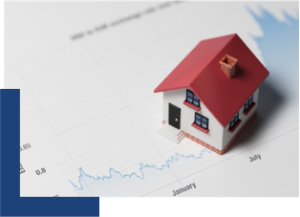- We’re an unbiased, independent brokerage with a decade of experience, dedicated to Canadian home buyers, offering personalized service with industry expertise.
- Unlike major banks, we avoid bureaucratic hurdles, prioritizing personalized solutions to reduce stress and enhance customer service.
- With a decade of local connections, we consult with care, offering what global brokers can’t – a personal touch with local expertise.
MORTGAGE BROKERS IN BURLINGTON
Who Stands To Change The Industry

Our Burlington Based Mortgage Brokers Offer The Following Services


First Time Home Buyer

Mortgage Refinancing

Mortgage Renewals

Private Mortgage

Second Mortgage

Self Employed Mortgage

Construction Financing

HELOC

$1000 Cash Back or Free iPad
When You Close With Us!


Why Us


We aim to provide unmatched superiority when it comes to service delivery. All our mortgage brokers are highly-trained to identify and solve the various problems mortgage seekers may have. We also provide the most competitive rates in Canada. We believe that you only seek a mortgage when you’re financially strained, and we don’t want to make it worse. Although we have expertise in the industry, we believe that the only way we’ll satisfy your needs is by involving you in the process. We won’t sideline you when looking for the best mortgage solutions for your situation. We will discuss with you every possible scenario and let you make the final decision. Whatever your needs are, we will meet them.
All our operations always revolve around our clients. We put your needs first, whether we are searching for an ideal mortgage product or negotiating on your behalf. Working with us means getting services that exceed expectations. We also have diverse lending partners in the traditional and private sectors, and we use those connections to get you the best loan terms.


Mortgage Offers
...pick the one thats right for you.


Featured Mortgage Rates

starting from
6.45%| Term | Rate |
|---|---|
| HELOC | 7.2% (Prime rate) |
| Lender | Rate | Term |
|---|---|---|
| 4.79% | 5 year | |
| 4.89% | 4 year | |
| 4.99% | 3 year | |
| 5.89% | 2 year | |
| 6.19% | 1 year |
| Term | Rate |
|---|---|
| 5 year variable | 6.2% (Prime - 1%) |
| 3 year variable | 6.25% (Prime - 0.95%) |
| Term | Rate |
|---|---|
| Line of Credit | Starting at 7.2% |
| Equity Loans | Starting at 6.5% |
| Private Mortgages | Starting at 7.99% |
Certified Mortgage Broker Burlington
Frequently Asked Questions About Your Burlington Mortgage

A mortgage is a contractual agreement between a lender and a borrower, where the lender takes possession of a borrower’s property as leverage for their money. By giving the property, you give the lender the right to possess it permanently if you fail to honour the mortgage terms or if you don’t pay back the capital and the interest.

The mortgage contract usually contains all the details, including the duration you are supposed to take before paying back the full amount. You can use the mortgage to buy a new house or take it against the value of a property you already own. Either way, you will pay the principal amount, which is the amount you borrow, plus the interest within the stipulated timeline.
Residential Mortgage
Residential Mortgage In Burlington
Our dedicated advisers have intimate knowledge of the Burlington area and will strive to give you a competitive edge up in the Canadian property market. Let us do all the hard work for you, and rest assured, our goal is to offer you the best rates than any other mortgage broker in Burlington without a headache.
Refinancing In Burlington
Let us see if we can save you cash on your existing mortgage! We can help to show you whether it’s possible for you to lower payment (and rate) of your current loan, help you plan to consolidate existing debt, increase cash flow available to you and even offer you the potentiality of moving your existing contract locally.
Commercial Mortgage
Running Business In Burlington
Commercial mortgages were specifically created for for businesses and private investors, who wants to either refinance or outright purchase for the first time properties designed to end up in the incoming producing category. Some common examples of this at the larger end are restaurants or office premises, malls, self storage, and industrial properties.
If you are looking to grow your business in Burlington or it’s surrounding areas, we have the local and wider knowledge how to help you by acquiring income producing premises through our plan.
If you are a small, medium or large local business owner and considering investing in commercial property, see what our brokers can do for you. Don’t hesitate to get in touch!
Borrowers often get to choose one of two repayment options, namely:
Open plan
When you choose the open mortgage repayment plan, you will be able to pay back the principal amount of the mortgage at any time. It gives you the freedom to pay the loan any time you get sufficient funds without worrying about penalties. Although it gives you more flexibility, this payment plan has the disadvantage of a shorter term. The term will be one year or less if you choose a fixed interest rate or up to five years if you go for variable rates.
Closed plan
If you opt for the closed payment option, you will have to wait until the mortgage term elapses before paying the full capital. You’ll still be allowed to make large payments, but you can’t complete the loan early without being penalized. The only advantage is lower interest rates.

Yes. Pre-approval not only reduces the time you take before getting an ideal loan; it also leads you to the right lenders. The process involves the submission of your financial information to the lender, after which they determine the amount you can qualify for. The lender will also use that information to check your credit rating. When done with the background check, they will tell you the amount you can borrow and the payment plan you’ll have to adhere to. Some of the benefits of pre-approval are:
- No time wastage on properties that you can’t afford
- Informing you of the down payment beforehand, which means you’ll come up with a working budget before taking the loan.
- Getting considerations from lenders who already know your worth and are therefore aware of your capacity to pay them back.Short approval durations typically, ranging between 60, 90, or 120 days.
- Short approval durations typically, ranging between 60, 90, or 120 days.
Both fixed and variable interest rates have advantages and disadvantages that you must consider when comparing them. Whatever you choose, make sure it works for your situation.
Fixed interest
Most mortgage borrowers in Canada tend to prefer fixed rates. They remain the same during the whole term, but they are generally higher than variable rates. The stability of the fixed rates will allow you to manage your funds properly. You can assign the same amount of money towards the mortgage payment, and so long as the income remains steady, you won’t experience more financial problems.
Variable interest
Variable interest rates will keep changing over the mortgage term. You will pay less for some months and more for others. While the unpredictability may be impractical if you have a tight budget, these rates are lower than fixed rates.

The average acceptable down payment is usually 20% of the purchase price. However, sometimes you can be allowed to pay as little as 5%. You must remember that the less you pay, the more mortgage you will need to cover the purchase balance. The more mortgage you get, the more you will have to pay back, and the higher the interest will be.
That is why it’s acceptable to get CMHC insurance if the down payment is less than 20%. The insurance reduces the risk for the lender in case you don’t pay them back.
The down payment is the amount you pay from your pocket. It will be deducted from the purchase price of the home, with the mortgage covering the rest. Mortgage brokers Burlington advise you to try to pay as much as you can to reduce the interest on the mortgage.
Closing costs are the fees you pay when you’re getting a mortgage or finalizing the purchase of a property. The costs usually add up to between 2% and 4% of the mortgage you’re getting. The costs also cover various aspects of the property acquisition, such as:
- Appraisals
- Inspection
- Lands transfer tax
- Property tax
- Legal costs
- Insurance cover for the property
- Adjustment costs
Appraisals are usually done to ascertain the value of the property for the lender, while inspections are done for the buyer to ensure the property doesn’t have structural problems. The adjustment costs cover several aspects such as utility bills and additional taxes that the lender may fail to cover.
- A form showing all your assets
- A liability list
- Bank information – If you have several accounts, submit all of them
- Building plans or blueprints for new constructions
- Income information and proof
- Your lawyer’s information
- The contract between you and the seller
- MLS listing
- Documents showing that you’ve paid the down payment
Appraisal: This is the evaluation done to determine the value of the property before a lender gives you the mortgage you want.
Amortization: This is the time you are given to complete paying off the mortgage.
Deposit: This is the amount you give to show interest and secure the property.
Home inspection costs: The amount spent to determine if the property you want to buy has structural issues.
Down payment: This is a portion of the purchase price you must pay from your pocket before the mortgage covers the remaining amount. It is usually in percentage form.
LVT: The loan to value ratio is the amount of loan you’re interested in vs. the value of the property.
Property transfer tax: The tax you pay when the property is officially transferred to your name.
Pre-payment option: The payment option that determines when you can pay off the capital. Some options have penalties, and others allow you to make early payments.
Term: The duration you take with the mortgage. There is always a chance to renew the mortgage term when it is due.
Mortgage loan insurance: The insurance you take to boost your down payment if it is too low. The insurance amount will depend on the amount of mortgage.
You have questions. We are here to help!


OUR CUSTOMERS LOVE US




Contact Us

Turkin Mortgage Across Ontario
…by providing award winning customer service to each and every single client.














